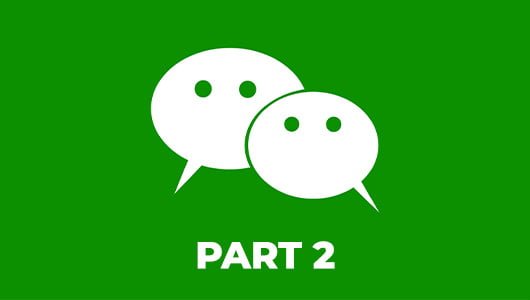Search Engine Optimisation (SEO) is a crucial aspect of digital marketing. It involves optimising your website to increase its visibility and ranking on search engine result pages (SERPs). A higher ranking can lead to increased traffic, more leads, and higher revenue. In this article, we will discuss seven essential SEO techniques that can help boost your website ranking.
1. Keyword Research
Keyword research is a critical step in SEO, laying the foundation for a successful online presence. It involves identifying the keywords and phrases that potential customers are searching for and incorporating them into your website’s content. This targeted approach attracts relevant traffic and improves your chances of ranking high in search engine results pages (SERPs).
Tools like Google Keyword Planner and SEMrush can help you identify relevant keywords and phrases, providing insights into search volume, competition, and related keywords. Once you have identified your target keywords, use them naturally throughout your website content, including in page titles, meta descriptions, and header tags.
2. On-Page Optimisation
On-page optimisation plays a pivotal role in enhancing the search engine rankings and relevance of individual web pages. It includes optimising page titles, meta descriptions, header tags, and the content on the page.
To ensure optimal search engine performance, ensure that your page titles and meta descriptions incorporate your target keywords while providing a captivating summary of the page’s content. Use header tags (H1, H2, H3) to structure your content and make it easy to read. Use your target keywords naturally throughout your content, but avoid keyword stuffing, which can negatively impact your ranking.
3. Mobile Optimisation
Mobile optimization is the process of optimising your website for mobile devices. With more people using their mobile devices to browse the internet, it is essential to ensure that your website is mobile-friendly. A mobile-friendly website can improve user experience and increase the time visitors spend on your website, which can positively impact your ranking.
Ensure that your website is responsive, meaning it adapts to different screen sizes and resolutions. Use large font sizes and clear calls-to-action (CTAs) that are easy to click on mobile devices. Use compressed images and videos to reduce load time on mobile devices.
4. Site Speed
Site speed is a critical factor in SEO. A slow-loading website can negatively impact user experience and lead to higher bounce rates, which can negatively impact your ranking. Therefore, it is essential to ensure that your website loads quickly.
Use tools like Google PageSpeed Insights and GTmetrix to identify areas where you can improve your website speed. Common tactics include compressing images and videos, using a content delivery network (CDN), and minifying CSS and JavaScript files.
5. Link Building
Link building is the process of acquiring backlinks from other websites. Backlinks are a crucial factor in SEO as they serve as valuable endorsements, signalling to search engines that your website’s content is trustworthy and relevant. The more high-quality backlinks you have, the higher your website ranking is likely to be.
Identify websites in your niche that have high domain authority and reach out to them to request backlinks. Consider creating valuable content, such as blog posts or infographics, that other websites are likely to link to naturally. Avoid buying backlinks or engaging in black-hat link building tactics, as these can result in penalties from search engines.
6. Social Media Optimisation
Social media optimisation (SMO) involves optimising your social media profiles and content to improve their visibility and engagement. Social signals, such as likes, shares, and comments, can positively impact your website ranking.
Ensure that your social media profiles are complete and include links to your website. Use relevant hashtags and keywords in your social media posts to increase their visibility. Create valuable and engaging content that encourages social sharing.
Here are some ways that SMO can help improve website ranking:
- Increased visibility: By promoting website content on social media platforms, the website’s visibility and reach can be expanded, reaching a wider audience. When a website’s content is shared on social media platforms, it can drive traffic to the website and improve its search engine ranking.
- Social signals: Social signals such as likes, shares, and comments on social media platforms can help to increase a website’s search engine ranking. Search engines like Google consider social signals as an indication of the website’s popularity, relevance, and authority.
- Backlinks: SMO can help to generate backlinks to the website, which is another essential SEO factor. Backlinks are links from other websites that point to the website, and they signal to search engines that the website is credible and authoritative. Social media platforms can help to generate backlinks by promoting the website’s content to a wider audience, leading to more opportunities for others to link to the website.
7. Content Creation
Content creation is a crucial SEO technique that can significantly improve website rankings. When search engines like Google crawl websites, they look for high-quality and relevant content to index and rank.
By creating high-quality and relevant content on a website, it helps to improve its visibility on search engines, which in turn increases the chances of the website being found by potential customers. This is because search engines rank websites based on the relevance and usefulness of their content to users.
Moreover, creating fresh and unique content regularly can help improve the website’s domain authority, which is a measure of how trustworthy and authoritative a website is in the eyes of search engines. Websites with high domain authority are more likely to rank higher in search engine results pages (SERPs) and attract more organic traffic.
Additionally, incorporating keywords and phrases in the content that users commonly search for can help the website rank higher in relevant search results. This means that when users search for specific keywords or phrases related to the website’s content, it is more likely to appear on the first page of search results.
Overall, content creation is an essential SEO technique that helps to improve website rankings by increasing its relevance, authority, and visibility to search engines and users.
In conclusion, the essential SEO techniques to boost website ranking include keyword research, on-page optimisation, mobile optimisation, site speed, link building, social media optimisation and content creation. When applied correctly, it can uplift the websites to higher ranking in the search engines, and thus improving the performance of the websites.



